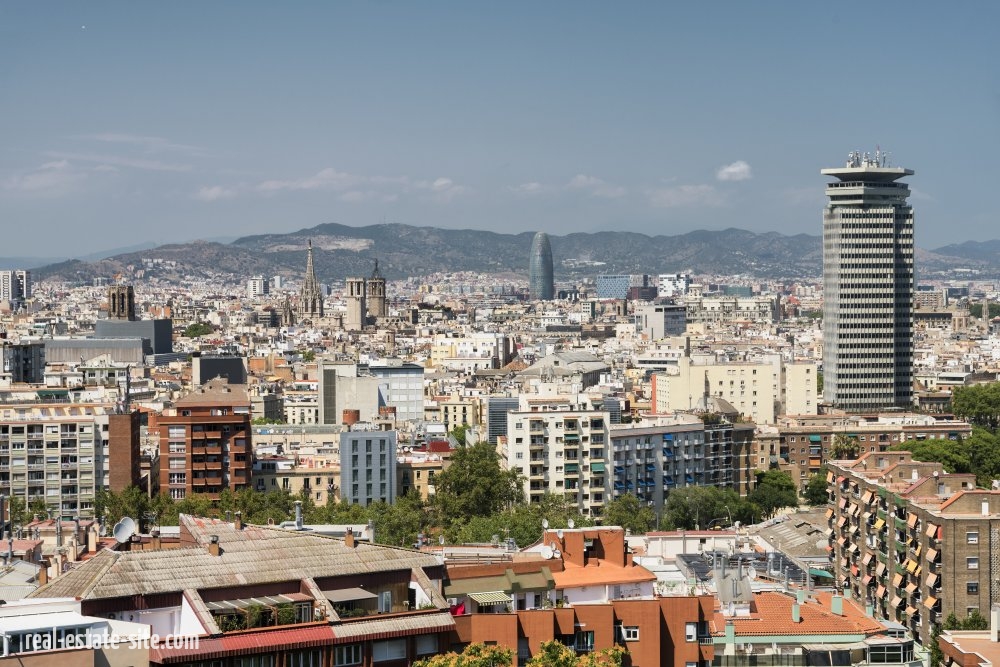Barcelona, the vibrant capital of Catalonia, is renowned for its rich history, cultural diversity, and architectural splendor. This Mediterranean metropolis, with its blend of tradition and modernity, has long been a magnet for tourists and expatriates alike. In recent years, it has also emerged as a prime destination for real estate investment. The city’s unique appeal, coupled with its economic vitality, makes the real estate market in Barcelona both dynamic and attractive.
Barcelona’s real estate landscape is characterized by a variety of property types, ranging from historic apartments in the Gothic Quarter to modern developments in areas like Diagonal Mar. Each neighborhood offers a distinct atmosphere and lifestyle, catering to different tastes and preferences. The Eixample district, for example, is famous for its stunning Modernist architecture and grid-like layout, offering spacious apartments with high ceilings and intricate detailing. In contrast, neighborhoods such as Gràcia and Poble Sec provide a more bohemian and laid-back vibe, with their narrow streets, lively squares, and a plethora of local shops and cafes.
One of the most appealing aspects of Barcelona’s real estate market is its relatively affordable prices compared to other major European cities like Paris, London, or Berlin. While property prices have seen a steady increase over the past decade, they remain accessible, particularly for international buyers. This affordability, combined with the city’s high quality of life, excellent infrastructure, and pleasant climate, makes Barcelona an attractive option for both investors and those seeking a new home.
The market in Barcelona is influenced by a range of factors, including economic conditions, tourism trends, and government policies. The city’s economy is diverse, with strong sectors in technology, finance, and creative industries. This economic diversity helps to sustain demand for real estate, providing stability to the market. Additionally, Barcelona’s status as a top tourist destination ensures a steady flow of visitors, many of whom are drawn to the idea of owning a property in the city.
Government policies also play a crucial role in shaping the real estate market. In recent years, the Catalan government and the City Council of Barcelona have implemented measures to regulate the market and address issues such as housing affordability and the impact of short-term rentals. Regulations on tourist licenses, for instance, have been tightened to ensure a balance between tourism and local living conditions. These policies aim to create a more sustainable and equitable real estate market, benefiting both residents and investors.
For those considering purchasing property in Barcelona, it is essential to understand the legal and procedural aspects of the process. Foreign buyers are allowed to purchase property in Spain, and the process is relatively straightforward. However, it is advisable to engage the services of a local real estate agent and a lawyer to navigate the complexities of the market and ensure compliance with all legal requirements. Key steps in the purchasing process include obtaining a NIE (Número de Identificación de Extranjero), opening a Spanish bank account, and securing financing if needed.
Financing options for purchasing property in Barcelona are varied, with both local and international banks offering mortgage products to non-residents. Interest rates in Spain have been historically low, making mortgages an attractive option for many buyers. It is important to compare different mortgage products and seek professional advice to find the best financing solution based on individual circumstances and financial goals.
The rental market in Barcelona is another important aspect of the real estate landscape. With a high demand for rental properties, particularly in central and well-connected areas, investing in rental properties can be a lucrative venture. The city’s large student population, thriving expatriate community, and continuous influx of tourists create a robust rental market. Rental yields in Barcelona are generally favorable, especially for properties in prime locations and those offering modern amenities and high-quality finishes.
Looking ahead, the future of Barcelona’s real estate market appears promising. Continued economic growth, infrastructural developments, and a strong international appeal are likely to sustain demand for real estate in the city. Additionally, emerging trends such as the increasing interest in sustainable and energy-efficient properties, the growth of remote work, and the rise of digital nomads are expected to shape the market in the coming years.
Sustainability is becoming an increasingly important factor in the real estate market, with both buyers and developers showing a growing interest in eco-friendly properties. Energy-efficient buildings, green spaces, and sustainable construction practices are gaining popularity, reflecting broader global trends towards environmental responsibility. Barcelona, with its commitment to sustainability and innovation, is well-positioned to lead in this area, offering opportunities for investors and buyers interested in green real estate.
In conclusion, Barcelona’s real estate market is a dynamic and multifaceted landscape, offering a wealth of opportunities for investors, homebuyers, and renters. Its unique blend of cultural richness, economic vitality, and affordable property prices make it a highly attractive destination. Whether you are looking for a historic apartment in the heart of the city, a modern home by the beach, or a lucrative rental investment, Barcelona has something to offer. As the city continues to evolve and grow, its real estate market is poised to remain a key player on the global stage, attracting interest from around the world.

